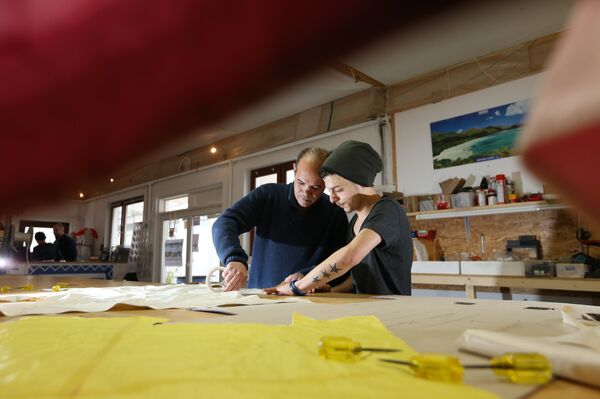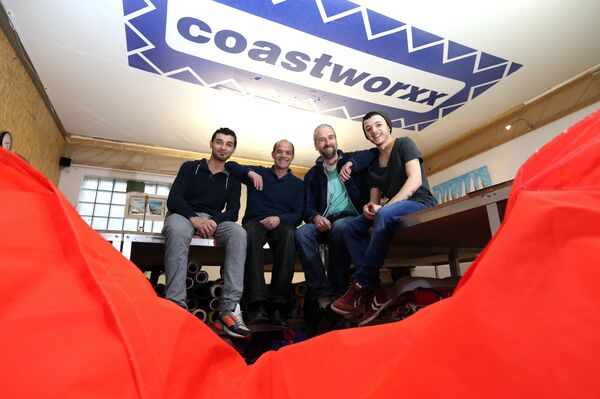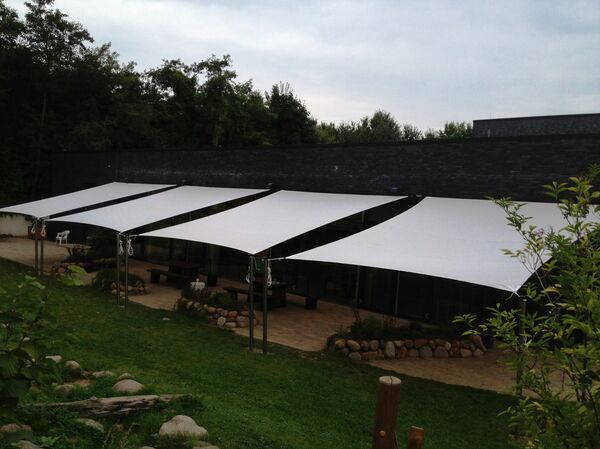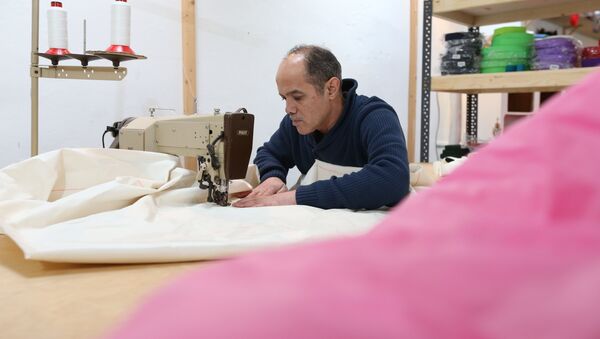Mohammed and Yousef work for a textile company called Coastworxx, where they use their unique skills to help make sails. Both men had textile businesses in Damascus, Syria and are now able to use this same craft in their host country of Germany.
Mohammed and Yousef contradict the mainstream media narrative that refugees have come to Europe to take benefits and not contribute to society.

Mohammed and Yousef repair damaged sails and make sunshades, as well as clothing and accessories from old sailcloth. Both men used to make curtains in Damascus, and their skills have come in very useful for this northern town in Germany.
These men have brought significant value to their place of work, according to Coastworkxx's chief executive Christian Lubbe.
"We have a special situation, most of the refugees coming here — about 60 percent of them — have been working in the textile industry. In cities like Aleppo, every second guy had a small textile company and the guys that come here have this experience. They know how to work a sewing machine and that's the value they bring," Mr. Lubbe told Sputnik.
"I remember the first time we had a sail that had to be repaired. I'd never done that before, but I just watched what the others did. The next one I did by myself. I was very glad to see I could do this job," Mohammed said in a recent interview.
Mohammed and Yousef made contact with Coastworxx's through Mr. Lubbe's wife, who is a German teacher.
"In 2015, my wife started to offer German courses for refugees as we have a refugee camp here in the town. I said, 'yes lets get in there and get to know them' and then I found out that these guys knew how to sew," Mr. Lubbe said.
However the transition for both Mr. Lubbe, his employees and for Mohammed and Yousef, has not always been easy. Overcoming the communication barrier was the hardest battle.
"Neither men speak any German, so we have had to use a translator in the past, but one thing is certain — both men are hard workers and the employees here at Coastworxx's see that, as a result we have come together as a team," Mr. Lubbe told Sputnik.
Mohammed used to make curtains in Damascus. Now he sews sails on the Baltic coast. https://t.co/TTRVGPM0KW pic.twitter.com/T5PtE5IpRb
— UN Refugee Agency (@Refugees) 12 April 2017
When the men first arrived, they were both unsure of the situation, however after a month, they settled in well and have now started to work for the company full-time.
The story however, did not start in the best way. Like most refugees, the men decided to travel to Europe and send for their wives once they were safe.

Arriving in Greece on a flimsy rubber boat, Mohammed had paid smugglers to fly him to Switzerland, where he took a train to northern Germany.
Yousef's journey was a little different.
He decided to travel to Europe in 2014 and went on a boat from Syria, again he paid someone to help him travel.
However, the smugglers Yousef paid turned on the passengers, claiming that they had not received their money, they diverted the boat elsewhere. After 11 days they arrived in Egypt.

As Yousef had no official documents, he and the other passengers were arrested and taken to a detention facility, they were eventually released eight months later.
"You don't know what that felt like, being in prison and not knowing what would happen. All my money was gone. Every day I asked myself, how do I get out?" Yousef said in a recent interview.
In June 2015, delegations from Sweden, France and Germany agreed to resettle the prisoners to Europe. A relieved Yousef found himself on a flight to Germany, on his way to join his father and brother in Kiel.
Soon afterwards, his mother and sister arrived from Turkey as part of a family reunification program. It was at this point that the men met with Mr. Lubbe and a long-time friendship and working relationship began.
Mohammed and Yousef have finally found a future they can look forward to, one that will allow them to move on from the turmoil of the past.


